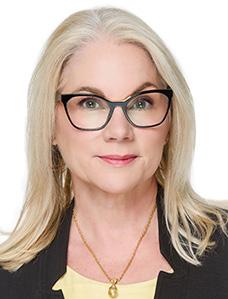2 minute read
Think beyond work
Next Article
The quickening pace of disruption and the irreversible paradigm shift in the workforce have firms facing an unrelenting set of challenges today. Technology, including artificial intelligence (AI), is enjoying celebrity status with some firms seeming to have found the way into the inner circle, while others are hanging in the crowd outside the velvet rope taking in the red carpet looks anticipating when the affordable version will be available for the mainstream.

The outcomes of mastering new technology solutions of any scope for your firm are exciting, energizing, and a path to better client service and growing profitability. The subject of talent, in comparison, is discussed like the infamous relative you have to invite to the party.
I’m not suggesting firms don’t value and respect their people. What I am hearing is fatigue from trying to understand why team members aren’t staying, if you can even get them to come in the first place, despite your genuine efforts. Compensation plays a role here, but we can discuss that another time. I’d like to address the ideas of purpose, worklife harmony, and the notion that work being someone’s entire life is no longer a measure of success.
We agree the profession suffers from misperceptions about being boring, grueling and unrewarding. Those of you have been around awhile know this to be wholly untrue – in the long run. Every career has elements of the job that are unfulfilling, yet somehow accounting is the unwitting winner of the award.
You have to ask what you’re doing internally to overcome this misconception. One observation is partner behavior that dually effects client transition and the ability to develop new partners. Not passing down work and not encouraging client relationships with the team, rather than with only the partner, are missed opportunities for technical development, and more importantly, to expose future leaders to the best parts of the job, helping people and the relationships.
This is a people profession; you are helping people in profound ways they could not do without you. That is surely a noble purpose that is underplayed. Society would be a mess without you!
Remote and hybrid work remain controversial. However, it does support the flexibility required to create a harmonization between work and personal life. Technology is the backbone of allowing such flexibility. And top talent expects your firm to be technologically sound or they will go elsewhere.
I heard a speaker on AI who asserted that in “co-working” with technology, the human side is community focused which is not an attribute of the tech side. Community implies a togetherness achieved by purposefully interacting with one another through teaching, learning, and fellowship.
Having a culture committee or a position dedicated to people can identify meaningful ways to connect. Creating an environment that encourages a healthy personal life and offers a sense of community will produce a team that understands there is an equilibrium between the high-intensity times and their long-term satisfaction.
Member firm Maxwell Locke + Ritter’s motto, “No success at work is worth failure at home,” is a great example of this balance.
The inherent opportunity here is to be a role model for your talent. Imparting the importance of what you do through exposure. Surveys show in many cases that partner hours are surpassing staff hours. The positive impact is taking care of the firm and its people. But at some point, this becomes negative when no room is being made for the creativity and stamina of younger people; those who can grow to lead the firm. Witnessing unremitting working hours is not inspiring to the younger generation of leaders whose resounding voice says, “I don’t want that as my life.” This has been said to me during many VIPs. This issue of CPAmerica Advantage is about outsourcing, which is one remedy to the talent crisis. Outsourcing can be a great solution, but is separate from the issue of attracting and retaining the firm’s domestic staff.
You have a choice to make decisions that do not diminish your value but instead empower you to be more of a teacher and less of a doer. You can show people not just how to work, but how to live.




